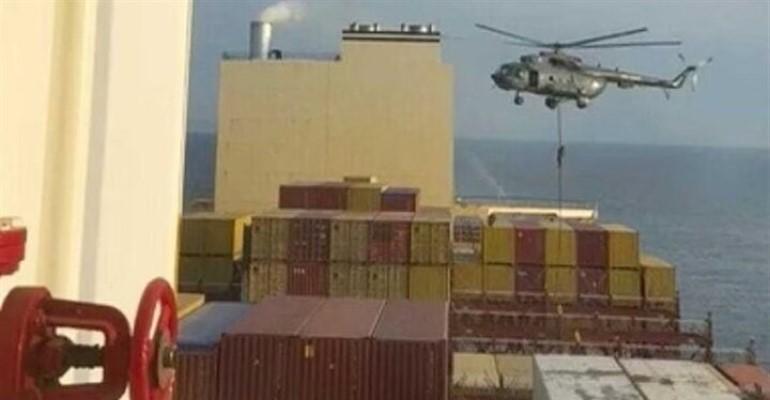The latest provocation came when Israel destroyed an Iranian consulate in Damascus, killing senior military personnel, on 1 April.
Iranian retaliation came over the weekend with a mass missile attack and the seizure of the 15,000 teu MSC Aries for what Iranian Foreign Ministry spokesman Nasser Kanaani said was, “violating international shipping regulations and failing to respond appropriately to Iranian authorities”.
The maritime industry has reacted with anger, Peter Sand the Chief Analyst at Xeneta commented: “this is another example of nation states attempting to weaponize international supply chains and that should be a cause for concern for us all.”
While Guy Platten, Secretary General of the International Chamber of Shipping (ICS) said: “Iran’s seizure of the MSC Aries is a flagrant breach of international law and an assault on freedom of navigation. This reprehensible attack against a merchant ship once again places innocent seafarers on the front lines of geopolitical conflict.”
For security firm Dryad Global, however, this escalation was entirely predictable with CEO Corey Ranslem saying that since the beginning of the latest conflict in October last year the company had increased its threat level for the Middle East including increasing the threat level for potential Iranian involvement and hijacking of Israeli linked vessels.
“The hijacking of the MSC Aries by the Iranians was not a surprise based on our current assessment. Currently we don’t see any additional effects on container shipping over what we’ve seen to this point with vessels diverting around the Horn of Africa. The Straits of Hormuz and Gulf of Oman remain at a critical risk to Israeli linked vessels,” said Ranslem.
According to the Hong Kong consultancy Linerlytica there are 500 boxships trading in the Persian Gulf, but only 10 of these are Israeli owned and they are all operated by MSC.
At this moment the wellbeing of the seafarers on board the MSC Aries and the car carrier Galaxy Leader, operated by Japan’s NYK Line and seized by Houthi’s on 19 November last year, is the main concern.
Some 50 crew on both vessels are now detained either side of the Arabian Peninsula, while others are held hostage by Somali pirates, across the water from Yemen, at the Bab al-Mandab strait.
With vessels now largely avoiding the Red Sea cut through and taking the much longer route around the Cape, supply chains settled after the initial interruption, but the latest events could see more disruption to shipping.
“Right now, we don’t believe oil prices will spike based on what has happened to date. However, this could change depending on the Israeli response. If there are any major supply chain disruptions, we could see the price spike thereby potentially limiting demand,” said Ranslem.
Dynamar analyst Darron Wadey, however, points to the uncertainty caused by the escalation over the weekend and the possible further ratcheting up of the conflict as Israel’s government plans its response.
“A rise in the price of oil will mean that the cost of physically moving commodities and products along their supply chains increases, other things remaining equal. This would go right down to the parcel delivery service to our doors, explained Wadey.
He added that such an event would clearly have a negative impact on inflation.
“Logically then, a sustained spike in the price of oil will ultimately have a knock-on effect upon demand for all manner of goods: simply put, there will be less money to go around on buying the ‘wants’ and ‘luxuries’ as more will have to be spent on the ‘essentials’.
“If the very recent events are limited to just these incidents, then hopefully the situation will be contained and limited, by implication, to merely temporary spikes,” he concluded.
Copyright © 2024. All rights reserved. Seatrade, a trading name of Informa Markets (UK) Limited.
Add Seatrade Maritime News to your Google News feed.  |

